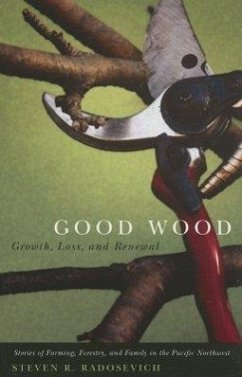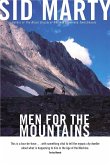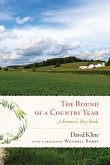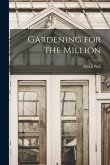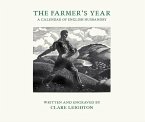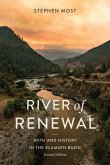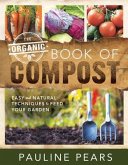As a young man, Steve Radosevich learned to prune trees by watching his grandfather. Working in the apple orchards of the struggling family farm, he saw that "every cut was a decision, conscious and deliberate, about the health of the trees and their coming crops." In Good Wood, Radosevich examines the choices, conscious and unconscious, we make in life and how those choices affect the health of people and places. Good Wood is a clear-eyed, finely hewed collection of personal essays on farming, forestry, and family in the Pacific Northwest. Radosevich draws on his experiences on two farms--the "homeplace," a family farm in Washington's Yakima Valley, and Kla-Kla-nee, his small vineyard in Oregon's Willamette Valley. Radosevich is also a professor of forestry, and his commitment to sustainable forestry informs his writings. His book seamlessly combines recollections of tending smudge pots on freezing spring nights east of the Cascades with discussions of the biological and ethical issues surrounding clearcuts in the Oregon Coast Range. His family's history on the land and his three-decade involvement in debates over natural resource use in the region provide Radosevich with a context for exploring a wide range of issues, from the flooding of Native fishing grounds at Celilo Falls and the fate of Columbia River salmon to salvage logging, soil erosion, and mad cow disease. "All these losses," writes Radosevich, "have been decisions too, made consciously I think, but with less deliberation than the forethought of a farmer pruning his orchard." As keeper of the old family orchard and tender of a new family farm, Radosevich reveals in these stories his deliberate choices and his hopes for theworld of his children and grandchildren.
Bitte wählen Sie Ihr Anliegen aus.
Rechnungen
Retourenschein anfordern
Bestellstatus
Storno

